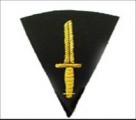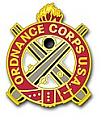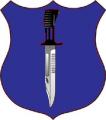Dear SWJ patrons,
I'm about to embark on a MSc dissertation for a Human Resource Development with Performance Management masters. My intention is to look at the training delivery required to deliver cultural competence to a post-modern Army.
Why this?
Well, Cultural Competence is the way of things now and of those to come in post-modern conflict. Time being the good old ubiquitous constraint within the military where and when does this training take place? Should it be delivered as on the job training (OJT)? Or should there be bespoke courses provided for those that require it? At what stages throughout a military career should this training be delivered?
As an example, the British Army are delivering their cultural training in a framework of three levels:
a. Cultural Awareness.
b. Cultural Understanding.
c. Cultural Competence.
This is great, but what is the best way to deliver this training? Is it by categorising it into levels as the British Army has or is it in another way?
I would be very interested to know the thoughts of those out there in SWJ. If there are any people who are already delivering such training then I'd love to hear from you, if you are prepared to share your best practice.
Many thanks,
Cdo Spirit



















Bookmarks